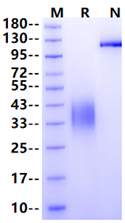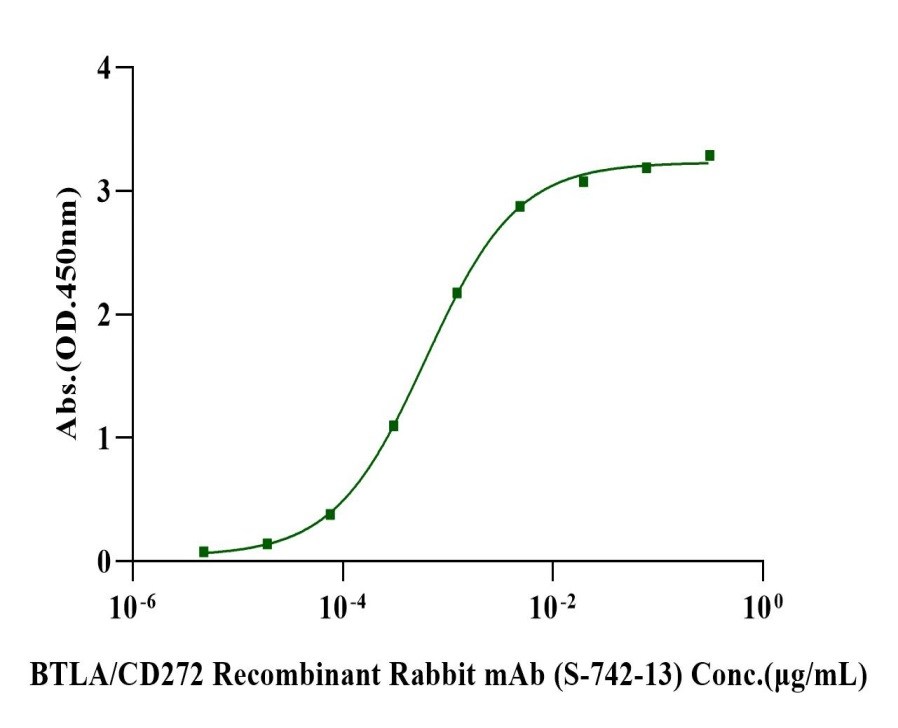Glu30-Gly176, with C-terminal 10*His
30-45kDa
PBS, pH7.4
Reconstitute at 0.1-1 mg/ml according to the size in ultrapure water after rapid centrifugation.
· 12 months from date of receipt, lyophilized powder stored at -20 to -80℃.
· 3 months, -20 to -80℃ under sterile conditions after reconstitution.
· 1 week, 2 to 8℃ under sterile conditions after reconstitution.
· Please avoid repeated freeze-thaw cycles.
1. DDEL RIO ML, KAYE J, RODRIGUEZ BARBOSA JI. Detection of protein on BTLAlow cells and in vivo antibody-mediated down-modulation of BTLA on lymphoid and myeloid cells of C57BL/6 and BALB/c BTLA allelic variants.[J]. Immunobiology: Zeitschrift fur Immunitatsforschung, 2010 ,215(7):570-578.
B-and T-lymphocyte attenuator (BTLA) is also known as B-and T-lymphocyte-associated protein, CD antigen CD272. BTLA is a inhibitory molecule which belongs to the Ig superfamily that attenuates BCR and TCR-mediated signaling, and thereby functions as a negative regulator of lymphocyte activation. BTLA contains one Ig-like V-type (immunoglobulin-like) domain. As a lymphocyte inhibitory receptor, BTLA / CD272 inhibits lymphocytes during immune response. BTLA is not expressed by naive T cells, but it is induced during activation and remains expressed on T helper type 1 (T(H)1) but not T(H)2 cells.

2μg (R: reducing conditions, N: non-reducing conditions).

Immobilized BTLA His Tag Protein, Mouse (Cat. No. UA010627) at 2.0μg/mL (100μL/well) can bind BTLA/CD272 Recombinant Rabbit mAb (S-742-13) (Cat. No. S0B0668) with EC50 of 0.54-0.70 ng/ mL.